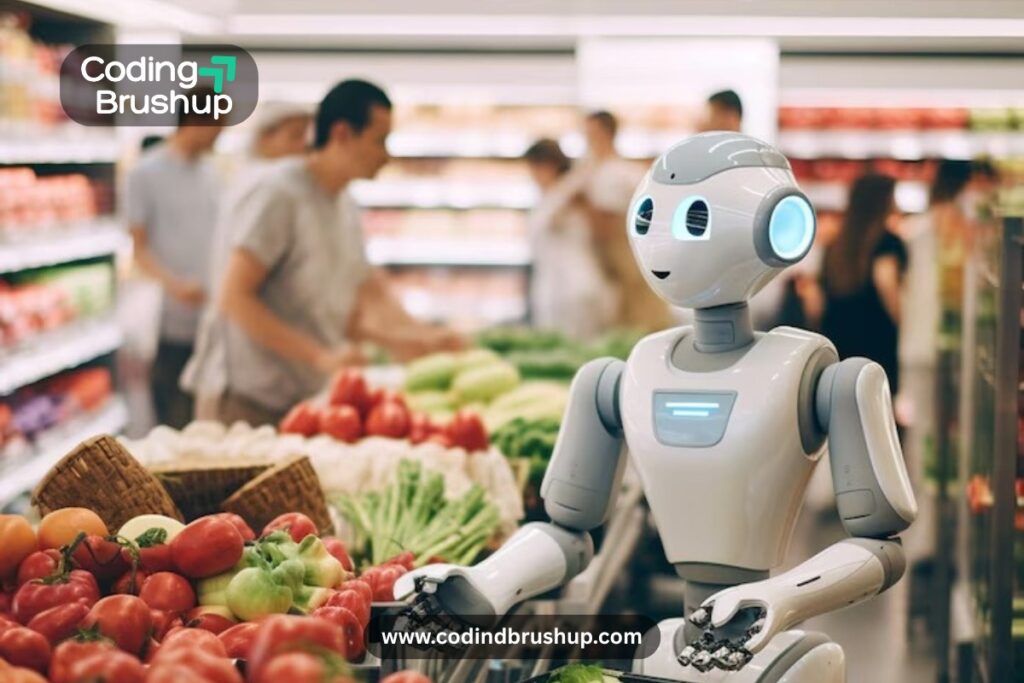Currently Empty: $0.00
Blog
How Machine Learning Is Transforming Everyday Life

Machine learning (ML) has become an essential part of everyday life, quietly transforming how we interact with technology. Whether you’re using a smartphone, navigating traffic with AI-powered apps, shopping online, or receiving personalized medical care, machine learning is working behind the scenes to make these experiences smarter and more efficient. In 2025, the role of machine learning in daily life has grown even more significant, enhancing everything from personal health tracking to grocery shopping and home automation. This blog post dives into how machine learning is transforming everyday life through practical, visible applications—and why this technology is more relevant and impactful than ever before.
🚀 1. Personalized Recommendations
One of the most common ways we experience machine learning in everyday life is through personalized recommendations. Machine learning algorithms analyze your past behavior to suggest what to watch, buy, or listen to next. For example, Netflix uses advanced machine learning models to recommend movies and TV shows based on your watch history and preferences. Similarly, Amazon’s machine learning-powered system suggests products tailored to your browsing and purchase patterns, helping you discover items you’re more likely to buy. Music streaming platforms like Spotify also leverage machine learning algorithms to curate personalized playlists, ensuring your listening experience feels unique and relevant. These machine learning-driven personalized recommendations enhance user engagement by delivering content and products that match individual tastes and habits.
Examples in Action:
- Netflix: Recommends movies based on your watch history
- Amazon: Suggests products based on browsing behavior
- Spotify: Curates weekly playlists using ML algorithms
Interactive Table: Recommendation Engine Accuracy (2025)
| Platform | ML Technique | Accuracy (%) |
|---|---|---|
| Netflix | Neural Collaborative Filter | 89% |
| Spotify | Hybrid Deep Learning Model | 93% |
| YouTube | Reinforcement Learning | 91% |

🗣️ 2. Voice Assistants & Smart Devices
Voice-enabled assistants such as Alexa, Google Assistant, and Siri have become essential smart devices in many households, all powered by advances in machine learning. These voice assistants use sophisticated natural language processing (NLP)—a core branch of machine learning—to understand and respond to user commands with increasing accuracy. Thanks to continuous improvements in machine learning algorithms, these smart devices can interpret context, learn user preferences, and perform complex tasks like controlling home automation, setting reminders, and providing real-time information. As machine learning technology advances in 2025, voice assistants are becoming even more intuitive, transforming how people interact with their everyday devices.
What ML Enables:
- Real-time speech recognition
- Context-aware responses
- Smart home control (lights, thermostats, appliances)
Fun Fact:
In 2025, over 60% of U.S. households use at least one ML-powered smart device.

🧠 3. Smart Healthcare Monitoring
Smart Healthcare Monitoring has rapidly evolved thanks to advances in machine learning. Today, wearables and mobile apps powered by machine learning algorithms offer real-time health diagnostics that help users monitor vital signs, detect irregularities, and even predict potential health issues before they become critical. These smart devices use machine learning models to analyze data from heart rate sensors, sleep trackers, and activity monitors, providing personalized insights and alerts. The integration of machine learning in healthcare wearables and mobile apps is transforming how individuals manage their health daily by enabling continuous, real-time monitoring and real-time health diagnostics powered by ML. more proactive and personalized than ever before.
How It Works:
- Detect irregular heart rhythms using smartwatch sensors
- Predict sleep quality and stress levels
- Alert emergency contacts during critical conditions
Popular Devices:
- Apple Watch (Heart rate, ECG)
- Fitbit (Sleep score)
- Samsung Galaxy Watch (Blood oxygen tracking)

🚗 4. Navigation & Travel Assistance
Machine learning powers popular navigation and travel apps like Google Maps, Uber, and Waze, providing users with accurate, real-time updates that enhance travel efficiency. By analyzing massive amounts of traffic data, ML algorithms predict congestion, suggest optimal routes, and dynamically adjust ride pricing to balance supply and demand. This seamless integration of machine learning in travel assistance not only saves time but also improves safety and reduces fuel consumption, making everyday commuting smarter and more convenient.
ML Capabilities:
- Predict traffic congestion
- Recommend faster alternate routes
- Dynamically adjust ride pricing
Interactive Table: ML in Navigation Apps
| App | ML Feature | Benefit |
|---|---|---|
| Google Maps | Predictive Routing | Save time on commutes |
| Uber | Dynamic Pricing Algorithm | Cost efficiency + availability |
| Waze | Community Incident Alerts | Live safety updates |

🛒 5. Smarter Shopping Experiences
Machine learning is revolutionizing both online and offline shopping by powering smarter, personalized experiences. From virtual fitting rooms that help customers try clothes digitally to predictive cart suggestions that boost sales, ML-driven technologies enhance every step of the retail journey. Retailers use AI and machine learning in shopping to analyze customer behavior, optimize inventory, and deliver real-time recommendations. This integration of ML in retail creates seamless, engaging shopping experiences that increase customer satisfaction and loyalty.
Use Cases:
- Chatbots for instant customer service
- Visual search for product discovery (e.g., Google Lens)
- Predictive inventory based on demand forecasting

📷 6. Photo & Video Enhancements
Machine learning is deeply integrated into smartphones, cameras, and social media platforms, revolutionizing how we enhance photos and videos. With advanced ML algorithms, devices can automatically adjust lighting, improve image clarity, and apply real-time filters for professional-quality visuals. Social platforms also use machine learning to auto-tag people, organize albums, and detect inappropriate content, making visual content management smarter and more seamless.
Examples:
- Auto-tagging people in photos (Facebook, Instagram)
- Scene optimization in phone cameras
- Deepfake detection for digital security

💬 7. Spam Filters & Email Categorization
Machine learning plays a crucial role in keeping your inbox clean and organized. Advanced ML algorithms analyze incoming emails to effectively filter out spam, phishing attempts, and unwanted messages. By continuously learning from user behavior, these spam filters improve accuracy over time, ensuring important emails land in your primary inbox. Additionally, machine learning powers smart email categorization, automatically sorting messages into folders like Primary, Social, and Promotions for a clutter-free experience.
How ML Helps:
- Filters spam and phishing emails
- Categorizes inbox content into Primary, Social, Promotions
- Prioritizes important emails based on behavior
Gmail uses ML to block 99.9% of spam effectively.

💼 8. Job Matching & Resume Screening
Job platforms such as LinkedIn and Indeed increasingly leverage machine learning algorithms to enhance the job matching process. Machine learning analyzes your skills, experience, and preferences to recommend jobs tailored specifically to you. These platforms use ML-powered resume screening tools to help recruiters quickly identify the best candidates, reducing hiring time. By using machine learning for job matching, job seekers receive more relevant job suggestions, improving their chances of finding the right opportunity. Overall, machine learning streamlines recruitment by automating resume screening and providing precise job matches based on real data.
Features Powered by ML:
- AI resume scanning tools for recruiters
- Skill-based job suggestions
- Career path predictions

🧾 9. Banking, Budgeting & Fraud Detection
Banking apps have become significantly smarter thanks to machine learning technology. Machine learning enables these apps to analyze spending patterns, automate budgeting, and provide personalized financial advice. Additionally, ML algorithms play a crucial role in detecting fraudulent transactions in real time, protecting users from potential threats. By leveraging machine learning, banks can offer more secure, efficient, and user-friendly financial services that adapt to individual customer needs.
Applications:
- Expense tracking and categorization
- Fraud alerts based on spending anomalies
- Credit score prediction and monitoring

🏠 10. Smart Homes & Energy Management
Machine learning plays a crucial role in advancing sustainable living through smart homes and energy management systems. By analyzing usage patterns, ML-powered smart thermostats, lighting, and appliances optimize energy consumption, significantly reducing electricity bills and carbon footprints. These intelligent systems continuously learn and adapt to residents’ behaviors, creating personalized comfort while promoting eco-friendly habits. In 2025, integrating machine learning with home automation is a key driver in making energy management more efficient and environmentally responsible.
ML-Driven Devices:
- Smart thermostats (Nest, Ecobee)
- AI-powered lighting systems
- Voice-controlled appliances
Benefits:
- Reduced electricity bills
- Better carbon footprint management
- Comfort customization
🎯 Key Takeaways: How Machine Learning Affects You
- Machine learning is everywhere—from your smartphone to your thermostat.
- It automates, predicts, and personalizes experiences across sectors.
- In 2025, ML is more embedded in daily convenience, health, safety, and entertainment than ever before.
🚀 Final Thoughts: Learn Machine Learning with CodingBrushup
If you’re fascinated by how machine learning is transforming everyday life and want to learn how to build ML applications yourself, CodingBrushup is here to help.
Coding bootcamp is designed to help you master machine learning, AI, and data science—from fundamentals to real-world deployment.
Whether you’re starting your tech journey or leveling up, CodingBrushup equips you with hands-on training, expert mentorship, and real-time project experience to thrive in a world powered by AI.

